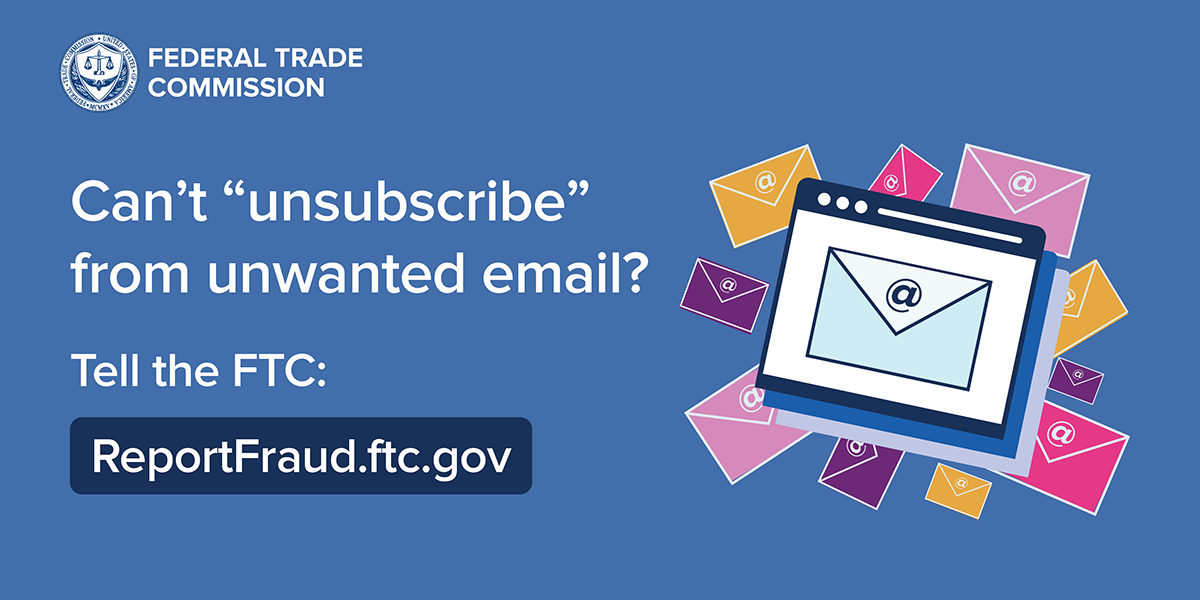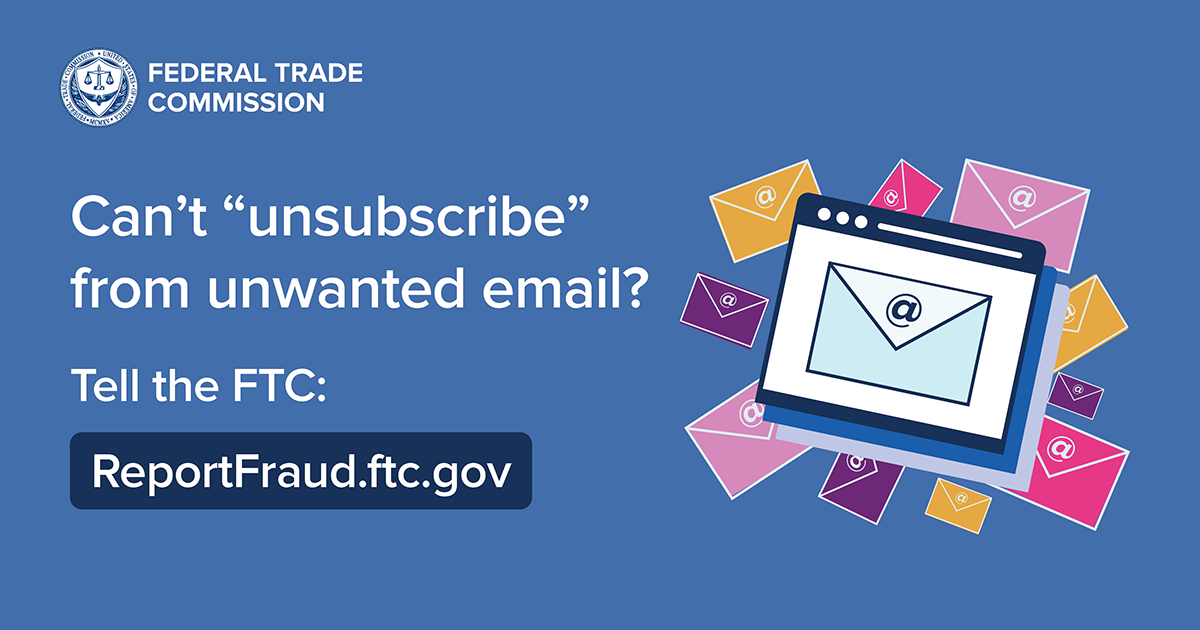No, you cannot usually sue for unsubscribed marketing emails directly. However, there are legal steps you can take.
Receiving unwanted marketing emails can be frustrating. Especially when you’ve already unsubscribed. You might wonder if there’s any legal action you can take. While suing may not be the first solution, there are regulations in place to protect you. Understanding these laws can help you decide your next steps.
This guide will explore your options and rights regarding unsubscribed marketing emails. Let’s dive in and see what you can do about these pesky messages.
Legal Framework For Marketing Emails
Understanding the legal framework for marketing emails is essential. Laws regulate how businesses communicate with consumers. Knowing your rights helps you protect your inbox from unwanted messages.
Relevant Laws
Several laws govern marketing emails. The most important in the US is the CAN-SPAM Act. This law sets rules for commercial emails. It gives recipients the right to stop receiving emails. It also outlines penalties for violations.
In the EU, the General Data Protection Regulation (GDPR) plays a key role. GDPR requires businesses to get explicit consent before sending marketing emails. It also gives consumers the right to withdraw consent at any time.
Consumer Rights
Consumers have several rights regarding marketing emails. Under the CAN-SPAM Act, businesses must:
- Include a clear and conspicuous way to unsubscribe.
- Use accurate header information.
- Identify the message as an ad.
- Include a valid physical postal address.
Under GDPR, consumers can:
- Request to see the data a company holds on them.
- Withdraw consent for email marketing.
- Request deletion of their data.
- File a complaint with a supervisory authority.
Knowing your rights empowers you. It helps you take action against unwanted emails. Stay informed to keep your inbox safe.
Identifying Unsubscribed Emails
Identifying unsubscribed emails is crucial if you are receiving unwanted marketing messages. Knowing the types of these emails and how to recognize them can help you determine if you have a case to sue.
Types Of Unsubscribed Emails
There are different types of unsubscribed emails you might receive:
- Promotional Emails: These are sent to advertise products or services.
- Newsletters: Regular updates from a company or organization.
- Transactional Emails: Notifications about transactions, like order confirmations.
How To Recognize
Recognizing unsubscribed emails can help you identify if you need to take action. Here are some signs:
- Lack of Unsubscribe Option: Legitimate emails include an easy way to opt-out.
- Irrelevant Content: If the content does not match your interests or past interactions.
- Frequent Emails: Receiving emails too often, despite having unsubscribed.
- Different Sender Names: Emails from different names but similar content.
If you recognize these signs, you may have a case for legal action against the sender.
Criteria For Filing A Lawsuit
Receiving unwanted marketing emails can be frustrating. Sometimes, even after unsubscribing, these emails continue. You might wonder if you can sue for this. The answer is yes, but there are specific criteria you must meet. Understanding these criteria is key before taking any legal action.
Evidence Required
To file a lawsuit, you need strong evidence. This evidence will support your claim. Here is what you need to gather:
- Unsubscribed Emails: Save copies of all the emails you received after unsubscribing.
- Unsubscribe Requests: Keep records of your unsubscribe requests. This can be screenshots or confirmation emails.
- Dates and Times: Note the dates and times of all unwanted emails.
- Communication Logs: Record any communications with the sender. This includes requests to stop sending emails.
Legal Grounds
Your lawsuit must be based on solid legal grounds. There are specific laws that protect you from spam emails:
- CAN-SPAM Act: This law sets rules for commercial emails. It gives recipients the right to stop unwanted emails.
- GDPR: If you are in the EU, the GDPR protects your data privacy. It includes rules against unsolicited emails.
- Local Laws: Some regions have additional laws against spam emails.
Understanding these laws helps in building your case. They provide the framework for your legal action. Make sure to consult with a legal expert to ensure you meet all the criteria.

Credit: consumer.ftc.gov
Steps To Take Before Suing
Before taking legal action against unsolicited marketing emails, it’s essential to follow certain steps. These steps can help strengthen your case if you decide to sue. They also provide an opportunity to resolve the issue without going to court.
Documenting The Issue
Start by collecting evidence of the unsolicited emails. This includes:
- Saving copies of all marketing emails received.
- Taking screenshots of the emails, including the sender’s address and date received.
- Keeping a log of the emails, noting the date and time each one was received.
Having a detailed record will be crucial if you decide to take legal action. It helps demonstrate the extent of the issue.
Contacting The Sender
Before suing, try to resolve the issue directly with the sender. Follow these steps:
- Find the sender’s contact information. Look for an email address or phone number in the email footer.
- Send a polite but firm email requesting to be removed from their mailing list. Include your email address and the details of the emails you received.
- Allow a reasonable amount of time for the sender to respond and take action.
If the emails continue after your request, you may have stronger grounds for legal action. Document any further emails you receive.
Possible Legal Outcomes
Receiving unwanted marketing emails can be frustrating. You may wonder if you can take legal action against the sender. There are possible legal outcomes if you decide to sue. These outcomes include compensation and injunctions.
Compensation
If you sue for unsolicited marketing emails, you may receive compensation. The court might award you damages for each email. This amount can vary based on the laws in your country or state. Some laws provide specific amounts per violation. Others consider the harm caused by the emails.
Compensation may cover any costs you incurred. This includes expenses related to blocking or filtering the emails. It can also include any time you spent dealing with the unwanted messages. In some cases, you might also receive punitive damages. These are meant to punish the sender and deter future violations.
Injunctions
Another possible outcome is an injunction. This is a court order that requires the sender to stop sending emails. An injunction can be temporary or permanent. It aims to prevent further harm from unwanted emails.
To obtain an injunction, you must prove that the emails are causing ongoing harm. The court will consider the evidence you provide. This might include the number of emails received and their impact on your life. If granted, the injunction can offer relief from the constant annoyance of spam.
Both compensation and injunctions can provide relief. They hold the sender accountable for their actions. If you are considering legal action, it’s important to understand these potential outcomes. They can help you decide if suing is the right step for you.

Credit: www.reddit.com
Challenges In Suing For Marketing Emails
Suing for unsubscribed marketing emails can be a challenging process. This section delves into the main obstacles you might face. Understanding these challenges can help you decide if pursuing legal action is worthwhile.
Burden Of Proof
One of the primary challenges is the burden of proof. You need to prove that the emails were sent after you unsubscribed. This requires keeping records of your unsubscribe requests. It also involves documenting any emails received after opting out. This can be time-consuming and complex.
Legal Costs
Legal costs can also be a significant barrier. Suing involves hiring a lawyer, which can be expensive. The cost of legal representation may outweigh any potential compensation. Many people find it hard to justify these expenses.
Alternatives To Legal Action
Receiving unsubscribed marketing emails can be frustrating. While legal action is an option, other solutions exist. These alternatives can be effective and less stressful. Below, we explore two practical methods to handle unwanted emails.
Reporting To Authorities
One way to address unwanted emails is by reporting them to the authorities. Many countries have organizations that oversee email spam issues. In the United States, you can report spam emails to the Federal Trade Commission (FTC). This helps authorities track and take action against spam senders. Filing a report is simple and can lead to penalties for persistent offenders.
Using Spam Filters
Another effective method is using spam filters. Most email services offer built-in spam filters. These tools automatically detect and divert unwanted emails to your spam folder. Adjusting these settings can reduce the number of unwanted emails you receive. You can also mark emails as spam manually. This trains your email service to better recognize and filter out future spam.

Credit: www.reddit.com
Case Studies And Precedents
Understanding if you can sue for unsubscribed marketing emails involves looking at past cases. Case studies and precedents shed light on how courts handle these situations. They provide insights into what might happen if you take legal action.
Notable Cases
One notable case is the 2017 ruling involving a major retailer. The company was fined for sending marketing emails after customers unsubscribed. They faced a hefty penalty, which highlighted the importance of respecting unsubscribe requests.
Another key case occurred in 2019. A tech company was sued for repeatedly emailing a former customer. The court ruled in favor of the plaintiff. This emphasized that businesses must comply with unsubscribe requests promptly.
Lessons Learned
These cases teach us several lessons. First, businesses must take unsubscribe requests seriously. Ignoring them can lead to legal trouble and fines.
Second, companies should have systems to track unsubscribe requests. Automated systems can help ensure compliance and avoid lawsuits.
Lastly, consumers have the right to take legal action. If you receive unwanted marketing emails, you can sue. These precedents show that courts often side with consumers in such cases.
Frequently Asked Questions
Can I Sue For Unsolicited Marketing Emails?
Yes, you can sue for unsolicited marketing emails. Laws like the CAN-SPAM Act protect consumers from spam.
What Is The Can-spam Act?
The CAN-SPAM Act is a law that sets rules for commercial emails. It gives recipients the right to stop emails.
What Damages Can I Claim?
You can claim statutory damages for each unsolicited email received. These damages can add up quickly.
How Do I Prove Unsolicited Emails?
Keep records of all unsolicited emails. Save copies with headers and timestamps for evidence.
Conclusion
Suing for unsubscribed marketing emails can be complex. Laws protect your privacy. Know your rights and take action if needed. Contact a lawyer for advice. Keep records of unwanted emails. This helps your case. Stay informed about changes in email marketing laws.
Protect your inbox and your peace of mind.


Leave a Reply